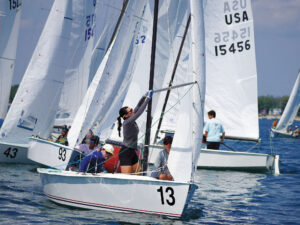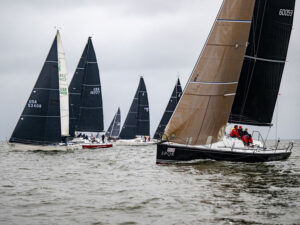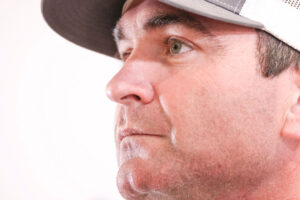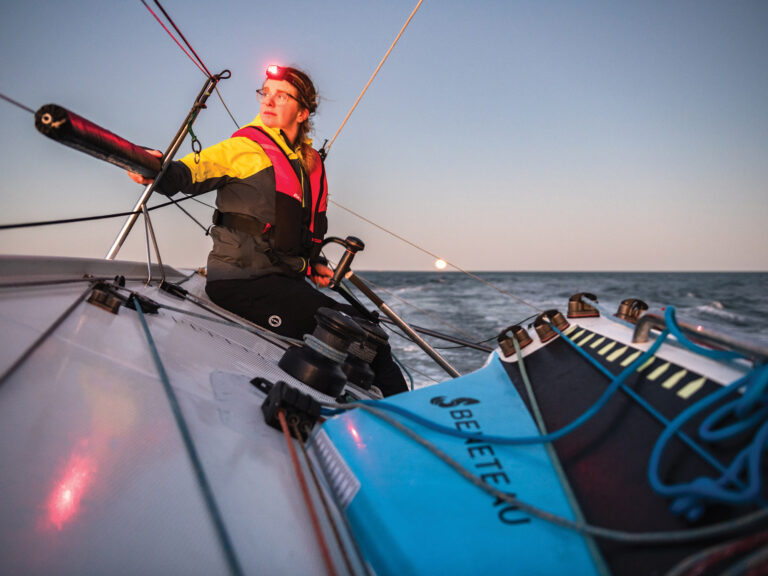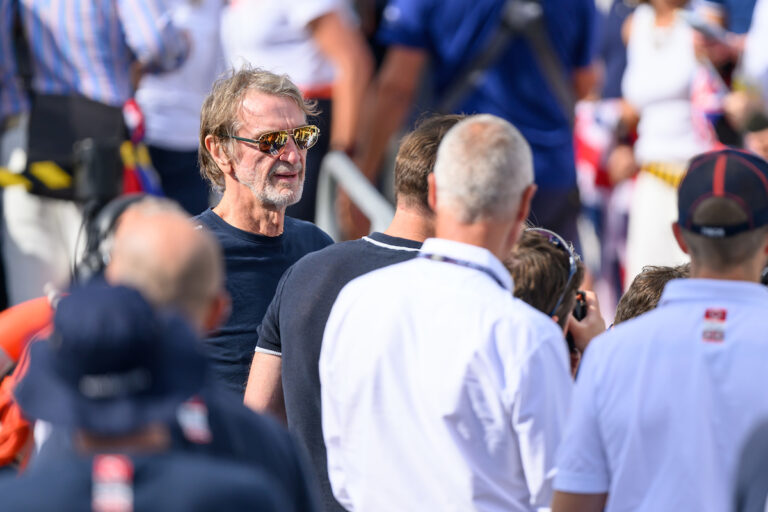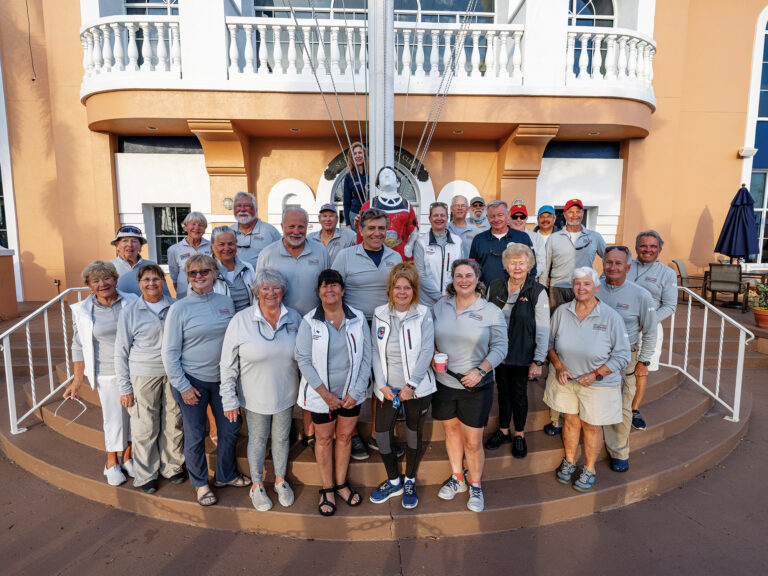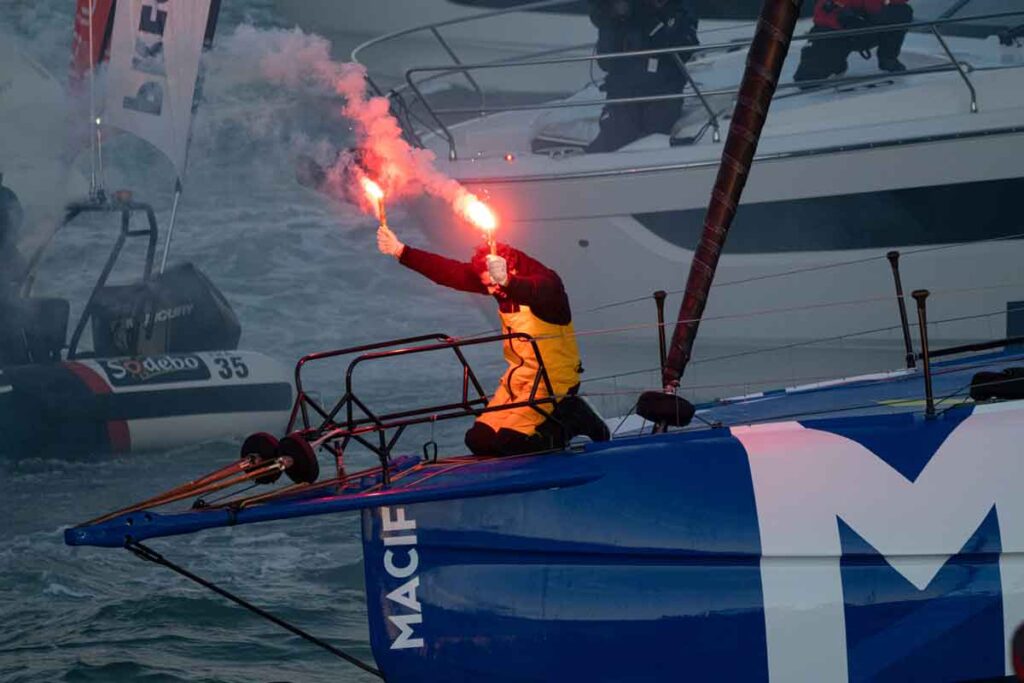
The arrival of French Vendée Globe champion Charlie Dalin in Les Sables D’Olonne today was more than a finish, or a circumnavigation completed. It was the ascension to the throne of ocean sailing’s new king. Conqueror of the high seas, and now the fastest singlehanded sailor of a generation. What was, until now, a 74-day race record has been reduced by nine days, with Dalin’s elapsed time set at 64 days, 19 hours, 22 minutes, 49 seconds. Let that sink in: 64 days, averaging 17.8 knots over 27,667.9 nautical miles. Incredible, amazing, and well… perhaps expected.
When the fleet of 40 competitors set off from Les Sables D’Olonne on November 10, 2024, Dalin was the obvious pre-race favorite, having technically won the race four years earlier, but relegated to second after a time reward was granted to Yannick Besthaven for his assistance in the rescue of stricken sailor Kevin Escoffier. With a faster boat for this edition and a technical team that would be the envy of all, there was nothing left to chance, but Dalin took plenty of them, chances that ultimately allowed him to surgically connect weather systems, post historical daily runs, and finish with a boat almost perfectly intact.
“It’s hard to believe it is already over,” Dalin told the IMOCA class’s Ed Gorman. “While I faced some minor challenges along the way, the boat held up beautifully and that’s thanks to the incredible work of the team. I felt like I had a true gem in my hands throughout the race.”
While there will be many pivotal stages to reflect on, one that stands out is Dalin’s blistering and brave approach to the Southern Ocean portion. Less than a month ago, Dalin was jibing along the race’s ice-exclusion zone ahead of what race meteorologists described as a “monstrous” low pressure system. At the time, faced with a race-defining decision; step up a few latitudes to build some runway should things get bad—the potentially safer option—or go for it and reap the rewards.
His closest pursuers, fellow Frenchmen Sébastien Simon and Yoann Richomme, played it safe and paid the price and over the next six days Dalin piled on the miles, his lead growing from double to triple digits.
Richomme, who Dalin credits for pushing him to work ever harder for every Southern Ocean mile, would eventually close the gap and pass the 15-day leader as they rounded Cape Horn.
“The battle with Yoann was awesome,” Dalin told Gorman. “He sailed an outstanding race, pushing hard in the South and attacking relentlessly. It’s thanks to him that this race was so fast-paced. His constant pressure made every moment of the journey a challenge and this intense rivalry is what allowed us to set these records.”
Dalin was surgically connecting multiple weather systems as he and Richomme climbed north to the Equator, locked together. And even at one point he confessed to the danger of not slowing his boat while affecting a repair at the top of the mast. Richomme was hunting him, and he knew every mile forward was precious—even if it meant a risky trip aloft.
Once clear of the Doldrums, it was a relatively straight shot to the finish, a crossing that had him arriving in Les Sable D’Olonne in the early morning hours of January 14. First across the line, Dalin entered the race’s history book by shaving nine days and eight hours off the race record, making him the fastest solo sailor to race non-stop, unassisted around the world.
Dalin’s foiler MACIF Santé Prévoyance (sponsored by a French insurance giant), was a highly tuned platform for this edition of the race, which had him and the front runners setting 24-hour distance records multiple times. Richomme nailed the best at a mind-blowing 574.71 nautical miles. Dalin was setting the pace and leading at key points of the racecourse; the Cape of Good Hope, Cape Leeuwin, and the Equator.
“I am feeling a bit tired, I need to get a bit of rest,” Dalin reported from his boat, MACIF Santé Prévoyance, on December 5, 2024, as he was racing to stay out front and setting up for the approaching storm. “I spent ten hours in front of the computer, running hundreds of routings, trying to work out what choice was good and for what reason. It has been fun to sail against this monster. I am like a horse only looking forward to the course with the blinkers on.”
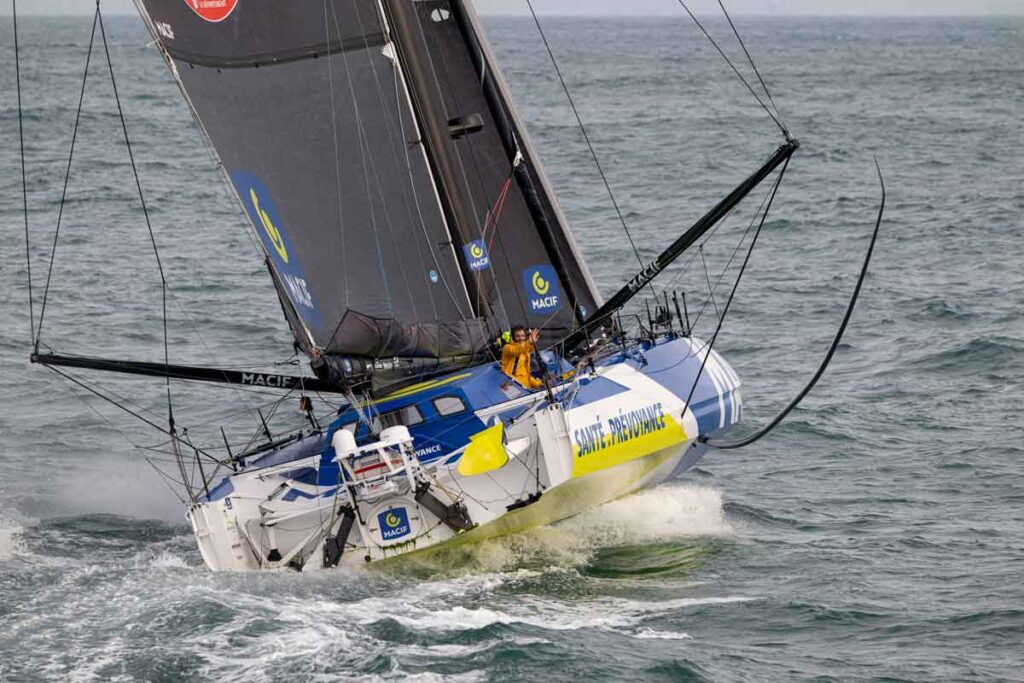
And he did, of course, have full confidence in his craft. “My cockpit is much more compact, which allows me to do many tasks without moving,” Dalin said before the race. “The ergonomics have been improved, the ventilation system inside too, there is much less water on the deck. And in terms of comfort, I have a custom-made seat with shock absorber and safety belt which is a change from the beanbag I had four years ago.”
“I am the happiest man in the world today, for sure,” Dalin said upon finishing. “With the team I have been working for four years on this edition, building this new boat, preparing this boat and upgrading the boat and now it is done.”

